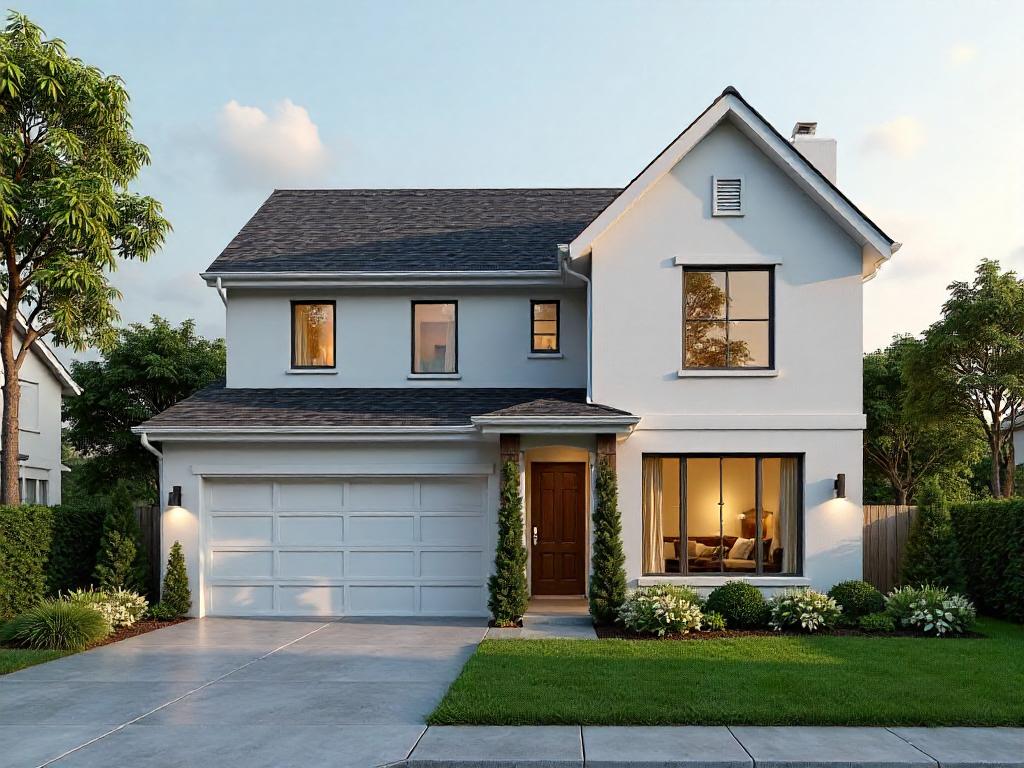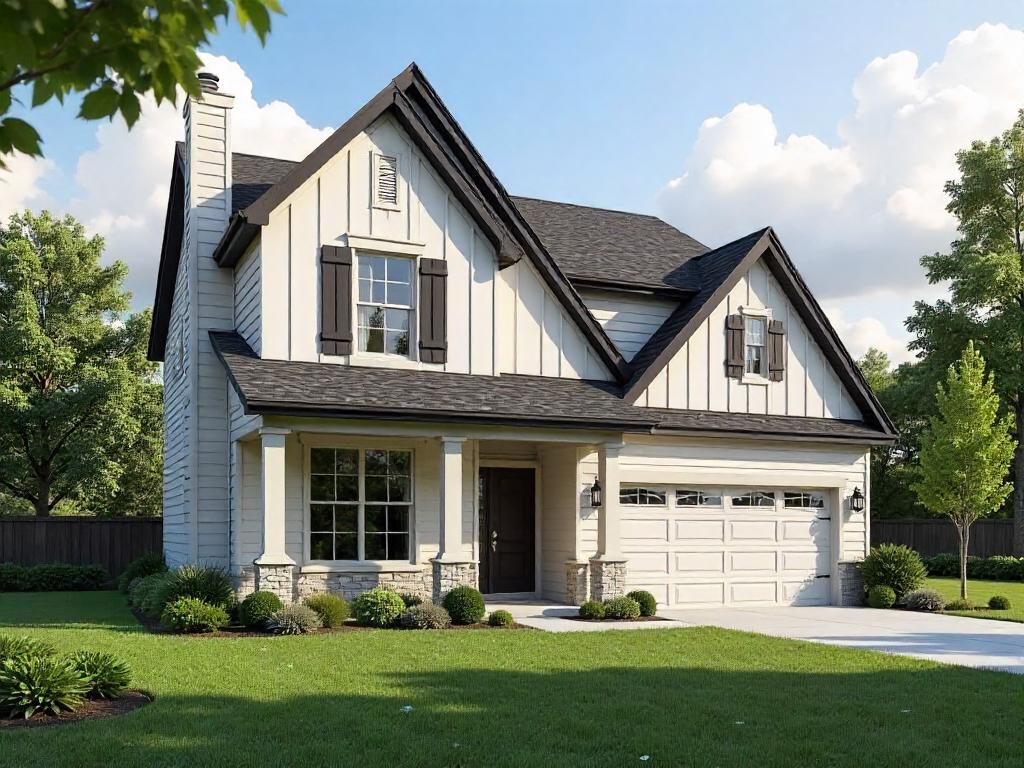House flipping is like dating; it can be exciting and rewarding, but sometimes it feels like you’re just swiping left on potential disasters. I’ve flipped a couple of houses myself, and let’s just say not all of them were hitched to a charming fate. This process involves buying a property, giving it a face-lift, and selling it for a profit. Sounds simple, right? But let me assure you, there’s more involved here than just slapping on some new paint and calling it a day. With various strategies available for making house flipping work—like using creative financing—you can turn this endeavor into a gold mine. But beware; it’s not all roses. There are pitfalls lurking at every corner. So, whether you’re looking to flip your first house or just curious about the process, pull up a chair; I’ve got some stories and advice to share!
Key Takeaways
- Know your budget before diving into a flip project.
- Explore creative financing options to minimize out-of-pocket expenses.
- Be aware of common traps that can catch inexperienced flippers off guard.
- Stay informed about market trends and neighborhood dynamics.
- Consult experts for advice and insights to avoid rookie mistakes.
Now we are going to talk about the intriguing world of flipping houses, a venture that often feels like the real estate version of lottery tickets—except the odds can actually be in our favor if we play it right!
Understanding House Flipping
House flipping is essentially the art of buying a property, breathing some new life into it, and then selling it at a profit. It’s like giving a tired old dog a fresh haircut and some grooming—suddenly, it’s a star at the dog park!
Typically, the goal is to flip that house faster than your Aunt Karen finishes a Netflix series.
During our house-flipping escapades, we often hunt for properties that have that “fixer-upper” charm. You know, the ones where the curtains seem to have been picked straight from the ‘90s.
As Ryan Zomorodi, a seasoned pro in this area, puts it, flipping houses means snagging a property that looks like it’s been through a rough patch—think peeling paint and questionable wallpaper choices—and then channeling our inner DIY god or goddess.
Here, we might:
– Make necessary repairs
– Jazz up the decor
– Tackle some of the structural issues
Zomorodi points out that many ambitious flippers aim to resell within a year. When we dive into that timeline, we might need to channel our favorite home improvement shows and strategize like we’re competing in the Olympics.
The art of flipping houses isn’t just about the cosmetic changes, though.
We also keep an eagle eye on the market trends, making sure we aren’t just throwing money at random projects that might leave us feeling like we’ve just dropped our last chip on the poker table—broke and bewildered.
It’s like trying to sell a snow shovel in July; timing is everything!
But it’s not all sweat and tears.
Sometimes the thrill comes from figuring out which property has been overlooked by the average homebuyer. Think of it as a treasure hunt, but instead of gold doubloons, we’re hunting down potential profits, one rusty fixture at a time.
In the realm of today’s housing market, where flipping can feel like a roller coaster—twists and turns included—it’s essential to research comparable sales.
Here are some handy tips for those aspiring to flip houses like pros:
1. Know your neighborhood – Understanding the local market can save us from making a colossal blunder.
2. Budget wisely – We all know what it’s like to underestimate expenses, and nobody wants a surprise bill that feels like a slap in the face.
3. Make strategic renovations – Focus on areas that will give the biggest bang for our buck—hello, modern kitchen!
4. Staging magic – A well-staged home could catch someone’s eye faster than a cat chasing a laser pointer.
Whether you’re a seasoned pro or someone just wanting to dip your toes in this exciting venture, remembering to do our homework can make all the difference.
With a little luck, a sprinkle of savvy, and maybe a few cups of coffee, flipping houses could just be our next big adventure!
Now we are going to talk about an interesting aspect of house flipping that many folks get tangled up in: do you need to break the bank to start this adventure? Spoiler alert: you don’t!
Funding House Flipping Without Your Wallet
Many aspiring house flippers assume they need a hefty amount of cash tucked away to get started. But guess what? That’s like thinking you need a yacht to enjoy a day on the water. Turns out, there are plenty of ways to set sail without it!
Take it from our friend Jeff Riber, who jumped into house flipping with both feet about 20 years ago. For the first five years, he flipped homes using other people’s money. Talk about a financial lifeline! He says, “Now I’m using my own money, but initially, that was how I got started.” That’s a solid blueprint right there. It’s like borrowing a friend’s lawnmower; you’re getting the job done without the hefty purchase.
Using loans or finding investors can make house flipping a feasible venture for those with limited savings. Here’s a quick rundown of some methods to fund your flipping escapades:
- Private lenders: These individuals or groups are looking to invest in real estate projects. They often offer more flexible terms than banks.
- Hard money loans: These are short-term loans from investors or companies that are secured by the property you’re flipping. They’re fast and can fund deals easily!
- Partnerships: Teaming up with someone who has cash but not the time or know-how to flip can smooth out the financial bumps.
- Crowdfunding: With platforms popping up like popcorn, it’s easier than ever to get small investments from many people for your project.
And let’s be honest, who wouldn’t want a little excitement in their financial life? Flipping houses can be like playing Monopoly—but with real money and, hopefully, fewer family feuds. While you might not need your own stash, it’s crucial to have a solid plan for handling your borrowed funds. After all, the last thing we want is to be flipping houses while flipping out!
So, before anyone tells you to ‘cash in’ before starting, remember there are plenty of avenues available that don’t require cash to burn. All we need to do is be open-minded and creative!
With a small army of potential financing options, we can kick off our flipping ventures without breaking the bank. Here’s to diving into the exciting world of house flipping—just make sure to keep that DIY spirit alive and your budget intact!
Now we are going to talk about how flipping houses usually works. It’s like a rollercoaster ride—thrilling, a little nerve-wracking, and the potential for a big payoff exists at the end!
What are the steps involved in house flipping?

House flipping has its ups and downs, but following these steps can make it feel more like a fun carnival game than a risky venture:
- Spot a diamond in the rough: Look for those hidden gems that the market overlooks. Who doesn’t love a good treasure hunt?
- Seal the deal: Get your finances in order and snag that property at a price that won’t leave your wallet crying.
- Spruce it up: Roll up those sleeves! A fresh coat of paint and some snazzy upgrades can turn that fixer-upper into a buyer’s dream.
- Put it on the market: Once you’ve worked your magic, it’s showtime! List that beauty and watch it fly off the shelves like hotcakes.
One expert, Riber, quips that the first step is like finding the secret key to the treasure chest. “You’ve got to identify those hidden diamonds,” they say. It’s seriously where the magic begins! No found house, no flipping charm. Picture trying to bake a cake without eggs; it just doesn’t work.
But hang on! Next, we must talk about financing. It’s like playing a game of musical chairs. You’ve got to move fast because while you’re deciding how to fund that property, someone else might just scoot right in and take it! Riber suggests, “I was out there hustling—sending letters, calling folks, and rubbing elbows in town just to find those deals.” Honestly, it’s a full-time gig screaming DIY enthusiast!
In the end, flipping houses is less about being a real estate mogul and more about being a savvy detective, a skilled negotiator, and an adventurous DIYer all wrapped up into one. Between dreaming up stylish renovations and finding ways to make the numbers work, it can truly feel like a wild mix of chaos and creativity.
| Step | Description |
|---|---|
| Find a property | Look for undervalued or distressed properties with potential. |
| Purchase | Secure financing and buy the property at a good price. |
| Renovate | Make necessary repairs and upgrades to boost market value. |
| Sell | List the renovated property and aim for a quick sale. |
So, whether you’re daydreaming about that quaint bungalow or eyeing a rundown ranch, just remember: a little elbow grease and plenty of savvy can turn those humble digs into a small fortune. Let the flipping begin!
Now we are going to talk about flipping houses without emptying your wallet. It sounds like a real-life version of Monopoly, right? Well, with some clever strategies and a dash of creativity, it’s totally doable. Let’s spill the beans on how rising stars in the flipping scene are doing it, with help from Riber and Zomorodi’s wisdom. Spoiler: it doesn’t involve selling a kidney!
Flipping Houses with Creative Financing
According to Riber, “Find a deal, and the money will follow.” Sounds simple enough, doesn’t it? You’d be surprised how many folks believe that cash is king. But it turns out the royal treasury often comes from networks of lenders willing to jump on a good opportunity. Here’s a couple of ways to secure that elusive funding:
1. Hard Money Lenders
Imagine that friend who always has cash for pizza but wants a piece of the action if you win at poker. That’s pretty much how hard money lenders operate. These are companies or individuals ready to lend out short-term loans specifically for real estate, often way faster than banks. However, like that pizza buddy, they can be a little pricey.
Riber points out that while these loans are easier to snag, they come with higher interest rates—think 11% to 13% instead of the traditional 7% you’d expect from a regular mortgage. So, if you’re flipping a house, you’d better be ready to hustle for that quick sale.
It’s like buying a fancy coffee every day: sure, it’s delicious, but it adds up quickly!
Risk is part of the name of the game. Flippers need to ask themselves whether their tomatoes are ripe enough to sell before the loan matures. Trust us, no one wants to end up with a bad deal that sours in the market. So, weigh the options carefully and be prepared to hustle!
2. Partner with Investors
If you’ve got some good ideas but lack the funds, consider finding a partner. Look around. Maybe your buddy from college has a stash of cash and a burning desire to invest. Teaming up is sometimes the best way to make the dream work. Just remember to split the profits fairly—unless you’re going for a “who buys the drinks” version, which can get a bit tricky.
3. Wholesaling Properties
Ever hear of wholesaling? It’s like being a matchmaker, but for houses! You identify a property, get it under contract, and then flip that contract to an investor. Voila! Instant cash without having to lift a hammer. Though it requires some legwork to find the right deals, the payoff can be sweet.
4. Seller Financing
Picture the property owner as a very patient parent: “Sure, you can pay me later.” Some sellers might be open to financing the house themselves, especially if they’re eager to sell. This approach can save lots of hassle and allows for a more flexible payment plan. Negotiating this could be your golden ticket!
5. Crowdfunding
If people are raising funds for everything from pizza places to new tech, why not for flipping houses? Crowdfunding platforms allow multiple investors to chip in on a property, taking some pressure off any single person. Just think: you could be flipping a house with the help of your online group that loves selfies. Turns out most people *will* invest if they believe in your vision!
In flipping houses, funds don’t always have to flow from personal pockets. With a bit of creativity and gumption, anyone can get in on the action! From hard money lenders to friendly investors, everyone can find a way to join the flipping fun.
Now we are going to talk about some creative ways to flip homes without emptying the piggy bank. If you’ve ever dreamed of flipping houses but shuddered at the thought of needing a fortune, don’t despair! We have options that won’t require a second mortgage on your grandmother’s prized rocking chair.
5 Budget-Friendly House Flipping Ideas
1. Live-in Flip
Imagine this: you buy a house, move in, and make it shine while enjoying your morning coffee on a newly painted porch. A live-in flip lets you call the property home while sprucing it up. By using a traditional mortgage, you can dodge hefty initial costs, plus there’s a chance for tax benefits once you sell. It’s like getting a starter kit for house flipping, minus the need for a reality TV crew!
2. Crowdfunding
Wave goodbye to going it alone! With crowdfunding, you can band together with fellow investors to gather cash for a property purchase or renovation. This allows you to dip your toes in the flipping game without needing to drop a whole sack of money. Think of it as a potluck, but instead of food, everyone brings cash to the table. Just make sure to bring the best dishes—err, properties!
3. Seller Financing
Picture this: you find your dream property, and instead of the bank, you negotiate with the seller directly. With seller financing, it’s like getting a loan from that cool uncle who always slips you a 20. You make monthly payments to the seller rather than a bank, often with terms that are a lot more flexible than what you’d encounter at your local bank. Though be warned, this option can be as elusive as finding a unicorn in the backyard!
4. Lease Option
Ever heard of a lease option? It’s your ticket to slowly test out a property before dropping the big bucks. A lease option lets you rent a place with the right to buy it later. This is perfect for those who might need a little time to polish up their finances or credit. It’s like trying on clothes but for houses—no commitment until you’re sure it fits your style!
5. Sale-Leaseback Agreement
Here’s an interesting twist: you sell your current home to an investor and rent it back. Sound wild? With a sale-leaseback arrangement, you get immediate cash to invest in other properties, while still having a roof over your head. It’s a win-win situation, kind of like finding a dollar in your pocket from last week’s jeans—unexpected and delightful!
Let’s be real for a second. As much as we’d love to say flipping houses with no money is a walk in the park, it’s a bit of a stretch. Sure, it’s possible to get started with little cash, but some investment is usually needed. Riber puts it best when they say, “You can’t just be homeless on the streets, and all of a sudden be flipping houses.” So, let’s chat and make smart decisions while we navigate this exciting investment world!
Now we are going to talk about some pitfalls that can trip up those eager to flip houses. It sounds easy enough—buy, renovate, sell, cash out! But let’s be honest; it’s like trying to bake a soufflé when you’ve never turned on an oven.
Potential Traps in House Flipping
- Surprise expenses: Just when you think you’ve budgeted every penny, a leaky roof or hidden mold pops up like an uninvited guest at your dinner party. Nothing says “happy flipping” quite like finding out you need to replace the entire plumbing system.
- Market swings: Picture planning a beach day, only to find out it’s snowing in July. The real estate market can be just as unpredictable. A downturn could mean your beautiful renovation is suddenly worth a lot less than you thought.
- Financing headaches: For first-timers, securing that all-important cash can feel like trying to thread a needle in the dark. Interest rates may cause your wallet to shriek. Best to have your financial ducks in a row before diving headfirst!
- Time drains: If you think flipping a house is a weekend project, think again! It’s more like training for a marathon. From dealing with contractors to juggling timelines, it demands patience—and perhaps a few cups of strong coffee.
- Legal labyrinth: The rules of real estate can feel like a never-ending maze. Get lost in zoning regulations, permits, and codes, and you might find yourself facing fines. It’s like trying to solve a Rubik’s cube, while blindfolded and standing on one leg.
As Zomorodi points out, newcomers should steer clear of properties that eat more cash than they spit out. The worst trap? Overestimating what a flipped house can fetch while underestimating how much you’ll fork out to get it there. That’s how folks can end up with a big fat loss sandwich, and no one likes that.
And it gets even stickier. Riber warns that messing up a project can tarnish one’s reputation among lenders. If you start irritating the money folks, you’ll quickly find your funding options drying up faster than a puddle in the sun. Once you lose credibility, trust us, it’s a slippery slope.
So, before plunging into the house-flipping adventure, it’s wise to soak up some knowledge, do meticulous research, and perhaps have a little heart-to-heart with a seasoned flipper. After all, nobody wants to flip their way right into a financial fiasco!
Now we are going to talk about some frequently asked questions and tips on flipping houses without breaking the bank.
Common Questions and Practical Advice for House Flipping on a Budget

What’s the average cost for flipping a house?
The price of flipping a house can feel like a rollercoaster ride. Prices depend on everything from the house’s purchase price to renovations, utility bills, and selling fees.
On average, house flippers might shell out anywhere from $45,000 to $80,000 for a flip, which seems like a good chunk of change, right?
Creating a thorough budget is crucial. Don’t forget to stash away a little extra for those surprise expenses—because let’s face it, who hasn’t had a “surprise” leak pop up at the most inconvenient time?
How much profit is considered reasonable from a house flip?
The golden question! A decent profit usually sits between 10% and 20% of the selling price.
For instance, if we sell a flipped property for $200,000, we’re looking at a profit of roughly $20,000 to $40,000.
Just remember, profit margins can waver based on market trends, renovation quality, and that original price we paid. So, take those factors into account, and it’s all part of the real estate adventure!
Is it possible to flip a house with poor credit?
Flipping with bad credit can feel like trying to run a marathon wearing flip-flops—risky, but not impossible!
We might consider teaming up with investors, relying on hard money loans, or even entertaining the idea of seller financing. And hey, working on that credit score over time wouldn’t hurt either; better scores lead to more financing options down the line.
Do you really need a real estate license to flip houses?
Many successful flippers partner with real estate agents who can navigate the entire buying and selling process like pros, making our job a whole lot easier!
| Question | Answer |
|---|---|
| Average cost to flip a house? | $45,000 to $80,000 |
| Good profit margin? | 10% to 20% |
| Can you flip with bad credit? | Yes, but options are limited. |
| License needed to flip? | No, but beneficial. |
- Create a detailed budget
- Factor in unexpected costs
- Consider partnerships for funding
- Build relationships with real estate agents
Now we are going to talk about evaluating whether house flipping is the right venture for us. Let’s get into the nitty-gritty of it all!
Is House Flipping the Right Move for You? Get Expert Advice
House flipping can spark that adrenaline rush, but hold onto your hard hats—it’s not as easy as it looks on reality TV.
Before jumping in, it’s crucial to take a long, hard look at our finances and time commitments. Have we got enough cash stashed away for those surprise repairs? Or are we comfortable with a few risks?
I once thought flipping my first house would be like a walk in the park. Spoiler alert: it wasn’t! Turns out “fixer-upper” didn’t just mean new paint and some cute throw pillows. Those charming little issues (let’s say, like plumbing) can easily inflate a budget faster than a hot-air balloon!
Zomorodi’s nugget of wisdom: “Executing the flipping business model is your best friend. Finding and hiring the right contractors while keeping your paperwork in check? That’s the bread and butter of success. Educating ourselves on these is super critical, especially if we’re diving in without a hefty budget.”
Of course, there’s another side to the coin. Flipping means making swift decisions—like trying to catch a pizza delivery guy who’s just knocked on our door, only to discover we forgot our wallet at home!
Riber’s two cents: “Being speedy is a must when flipping houses. If we’re using our own cash, we can say ‘yes’ to deals faster than our friends can agree for dinner plans. But if we’re reaching for a loan, a little bit of patience is key. And having a clear, honest dialogue with lenders can really smooth the path.”
Working with a seasoned house flipper or a savvy real estate expert can provide those key insights we didn’t even know we needed. They can save us not just time, but some serious dough as well.
Here are a few things to keep in mind before flipping:
- Evaluate financial health: Are we in a comfortable spot or living paycheck to paycheck?
- Risk tolerance: How much are we willing to gamble on a project?
- Time availability: Can we handle the time commitment needed for inspections and renovations?
- Understanding the market: Knowing the local market trends can really help!
Every little nugget of advice from experienced types can be priceless. Consulting with someone in the know could help steer us in the right direction.
If we’re still on the fence about flipping houses, remember: it’s okay to take time to weigh the options.
Sometimes, the best decision is to just hold off until it feels right!
And for those serious about finding a top-notch agent in the field, many resources can help connect us with someone who’s been through the wringer. That way, we can get the insights we need, and avoid falling into the same traps!
Conclusion
In the end, house flipping can be as thrilling as a roller coaster ride—full of ups and downs. Getting educated is paramount; you want more than just luck on your side. With the right strategies and a little bit of guts, you can make house flipping work for you. Just remember: every rose has its thorns. Embrace the journey, learn from the missteps, and don’t shy away from seeking expert advice. After all, every seasoned flipper likely has a scuffed knee or two from the ride. Let’s make wiser flips, not fumbles!
FAQ
-
What is house flipping?
House flipping is the process of buying a property, renovating it, and selling it at a profit. -
Do you need a lot of cash to start flipping houses?
No, there are various financing options available, allowing you to start flipping without a hefty amount of cash. -
What are some methods for funding house flipping?
You can use private lenders, hard money loans, partnerships, or crowdfunding to fund your flipping projects. -
What are the basic steps involved in house flipping?
The steps include finding a property, purchasing it, renovating it, and then selling it. -
Is it possible to flip a house with poor credit?
Yes, but options may be limited, such as teaming up with investors or considering seller financing. -
What is seller financing?
Seller financing occurs when the property owner allows you to pay for the house in installments directly to them instead of a bank. -
What common pitfalls should flippers be aware of?
Common pitfalls include surprise expenses, market swings, financing headaches, time drains, and legal complexities. -
How much profit can you expect from flipping a house?
A decent profit typically falls between 10% and 20% of the selling price. -
Do you need a real estate license to flip houses?
No, you don’t need a license, but having one can provide benefits like access to the MLS and networking opportunities. -
What should you evaluate before deciding to flip houses?
Consider your financial health, risk tolerance, time availability, and understanding of market trends before getting started.




